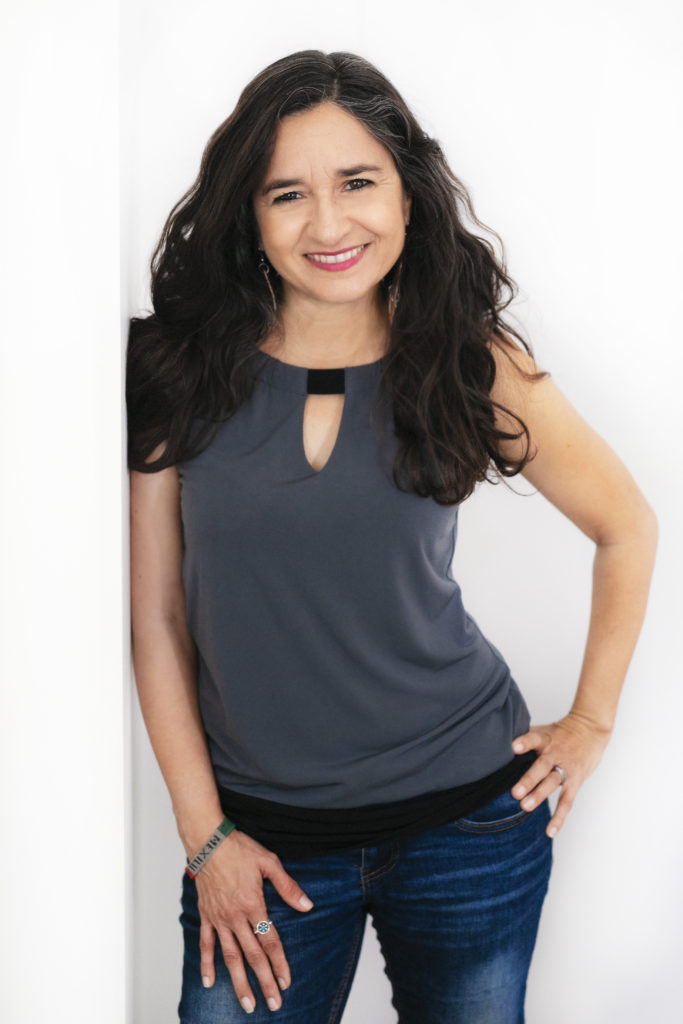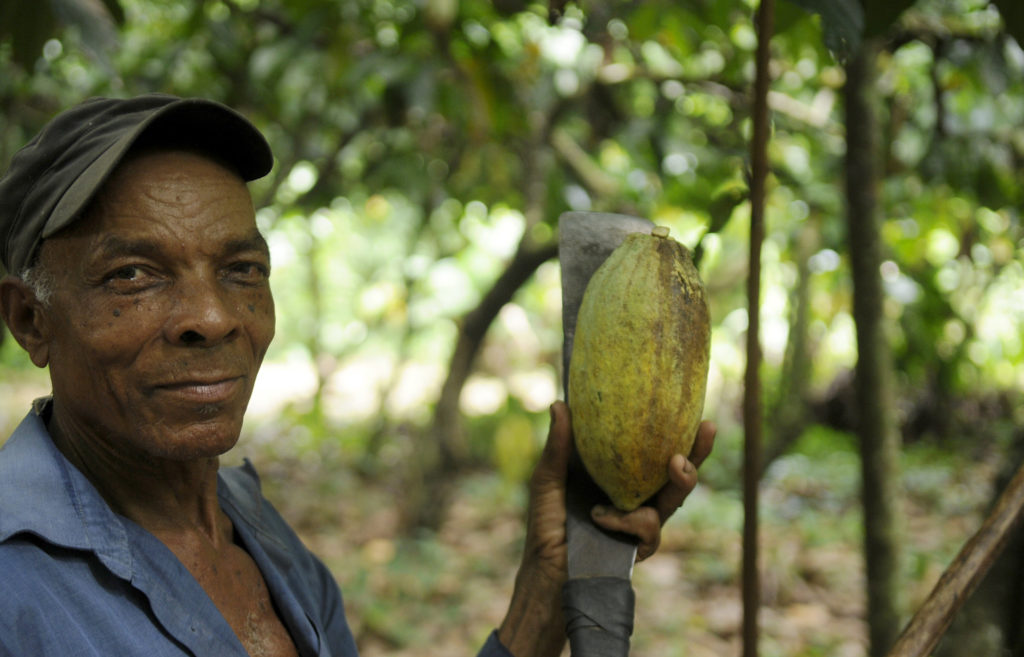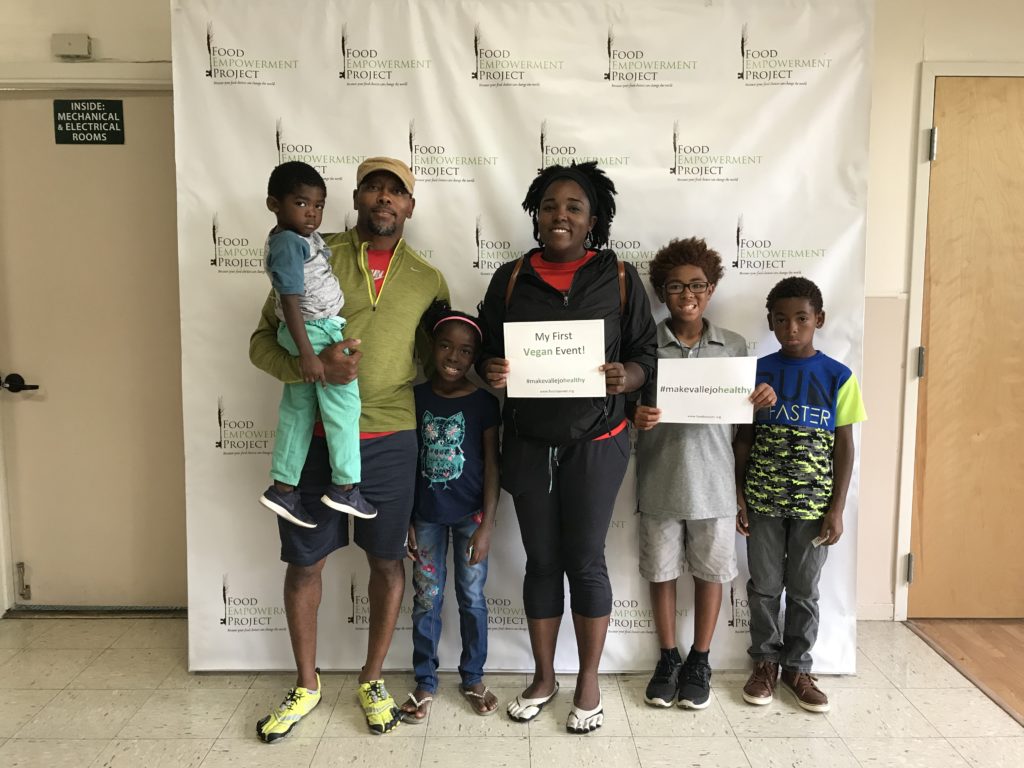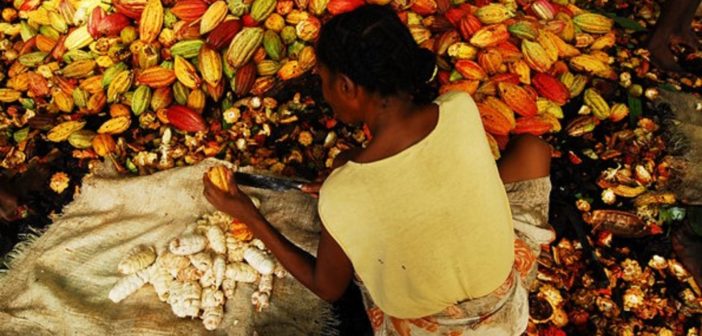Every time we choose plant-based foods over those that contain animal products, we’re reducing the suffering involved in producing our food. That’s a great thing, but many of us stop there and fail to think more holistically about what we support when we buy and eat certain foods. You may not realize that chocolate bar you bought was produced using slavery, or that your bananas were picked by children working long hours for very little pay. These products might be vegan, but that doesn’t mean they’re cruelty-free.

Food Empowerment Project (FEP) is one of the very few organizations working with a holistic concept of food justice, one that takes into account the suffering of both humans and nonhuman animals, as well as environmental concerns and issues of equity in food access. Not only do they promote veganism, they also work to advance farm workers rights, raise awareness of the lack of access to healthy foods in many marginalized communities, and provide resources for consumers to choose products that are ethically produced.
While so many activists are calling for vegans to embrace social justice and oppose all forms of oppression, FEP shows us exactly what that can look like in practice. They prove that compassion isn’t a zero-sum game, and disprove the tired idea that people who care about animals aren’t concerned about human suffering. This is the future of veganism and social justice, where all forms of oppression and suffering are taken into consideration and seen as interconnected.
In an interview with FEP’s founder and president, lauren Ornelas, we discussed “eating your ethics,” and how we can see our food choices as opportunities to make the world a better place.
Dylan Forest: How did you end up interested specifically in food justice, and what led you to found Food Empowerment Project?
lauren Ornelas: I went vegan in 1988 because I didn’t want to contribute to the suffering of animals. I had initially gone vegetarian in elementary school, but wasn’t able to stick with it because my family did not have a lot of money, and there were times we had to rely on the food people gave us.
After many years of focusing on animal rights in high school and college, my attempts at connecting these issues of injustice to other important issues were not fully understood or appreciated, so I knew that I needed to do something.
In 2006 I had the opportunity to speak at the World Social Forum in Caracas, Venezuela. It was refreshing to learn even more about so many of the issues I cared about and also see people who looked like me advocating for those issues. That is when I knew I had to start an organization that focused on vegan food justice, where I could connect many of the issues I really cared about—an organization to help create change and empower people with their food choices!
There’s a perception among some vegans that when they give up animal products, they’re automatically eating in a “cruelty-free” way, but that may not actually be the case. What other food issues should vegans be aware of when it comes to reducing suffering?
It is absolutely correct that while vegan food does not involve the suffering of non-human animals, it could still involve the suffering of human animals. When you look at produce and other commodity products (such as chocolate), even though it is vegan, if its production still involves the suffering of human animals – whether they be adults, children, or someone who’s enslaved – it cannot be called cruelty-free. We should all care about these other injustices and not want to contribute to the additional suffering of any animal – human or non-human. Also, those who are aware of these other abuses should be able to recognize and respond when vegans call something cruelty-free when there is actual human suffering involved. I believe acknowledging this human suffering doesn’t harm the cause for non-human animals.
Four vegan food products that have a high potential for causing human suffering are chocolate, coffee, bananas, and wine. Choosing ethically-produced versions of these products is important. You can find FEP’s chocolate list with more information on chocolate and precarious working conditions here, FEP’s coffee list here, banana list here, and wine here.

FEP advocates for people to change their diets to lessen the suffering their choices cause, such as following your guidelines to choose ethically-sourced chocolate. Do you think consumer choice alone is enough to change the ways our food system causes suffering to sentient beings, whether that’s animals being killed or farm workers being exploited?
It must also be combined with an effort to change the destructive systems that enable that suffering. This combination can be incredibly powerful.
A huge variety of ethical concerns all intersect around the food choices we make, and the production of our food can cause harm to animals, the environment, and humans. This can feel really overwhelming to navigate, like there’s no way to avoid making a bad decision or supporting harmful practices. How would you respond to someone feeling this way?
Learning about (and recognizing) the suffering, oppression, and destruction of our food systems can certainly feel overwhelming, which is completely understandable. We want people to recognize that their individual choice to eat their ethics can actually make a difference, as it has the ability to reduce the suffering of both human and non-human animals. Additionally, using our collective voices to create systemic changes can and will right the injustices in our food system. In other words, we need to look at our food choices as opportunities to better the world and try not be overwhelmed by the problems. Of course, we know not everybody has the privilege of eating their ethics.

FEP adds a caveat when you advocate for people to go vegan, which is not something I’ve seen often from vegan organizations. You say to go vegan “if you have access to healthy foods.” Why is this an important factor to acknowledge?
As an organization that works on the lack of access to healthy foods, we have seen first-hand the impact food apartheid has on communities (primarily Black, Indigenous and Brown). It’s completely unrealistic to expect people who live in these areas to go vegan when they do not even have a grocery store, let alone access to fresh produce.
If we want equity for all people and for them to be able to live healthy lives, they need to be able to access fresh fruits and veggies, as well as plant milk. If we want to lessen the suffering of non-human animals and have more people go vegan, they not only need to be able to access the food but also need to have jobs that pay a living wage to be able to afford those healthy foods.
FEP is an example of the kind of organization we need to be supporting in order to combat the whitewashing of veganism, as you’re led by women of color and you deal with racial justice issues. What other POC-led vegan or animal activist organizations would you recommend people familiarize themselves with and support?
We feel people should definitely familiarize themselves with the writings of Aph Ko, Dr. Breeze Harper and Christopher Sebastian McJetters, as well as with organizations such as AfroVegan Society and Veggie Mijas.
Featured image: a woman processing cacao in Madagascar. Image credit Connect4Climate, CC BY-SA 2.0.





